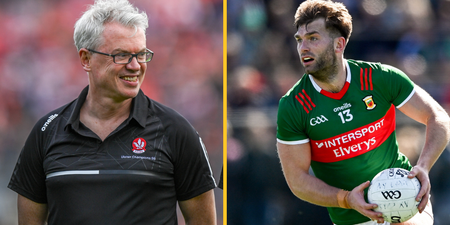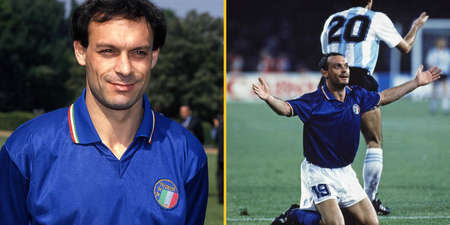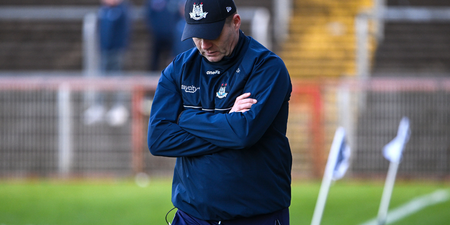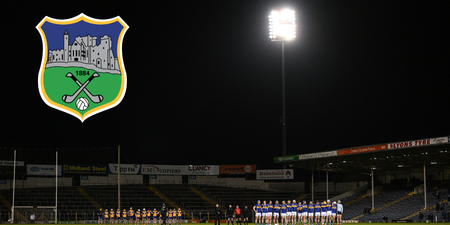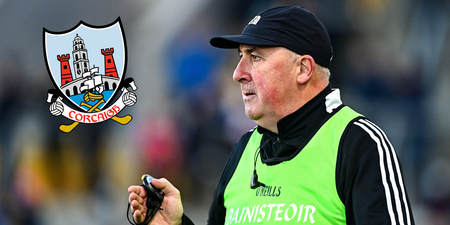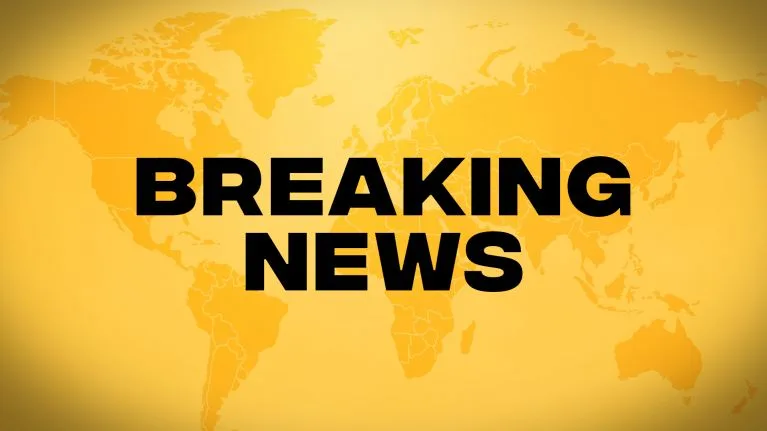“This is not what the GAA is supposed to be. It’s a bastardisation of the GAA.”
Joe Brolly has never held back about the way the game was going. Never.
The Derry legend though has usually been found criticising the new-wave of tactics which had threatened to ruin Gaelic Football as a spectacle. Now, his attentions have turned to a much more pressing matter.
Brolly has started to look deeper at what is driving this methodical style of play where win at all costs is all that seemingly matters. And he sees something a lot more worrying. He sees a reality where young men are nothing more than athletes. No career, no jobs, sometimes not even a life. Everything completely and entirely devoted to winning a game of football on a Sunday.
In a brilliant interview last night on Newstalk’s Off The Ball, the 1993 All-Ireland winner has expressed serious concern about the development of Gaels whose lives are put on hold so they can prepare sufficiently for what has become an increasingly professional sport.
“In a way now, the players are little more than indentured slaves,” Brolly told Newstalk. “You know, whenever I played football it was positive. We trained twice a week, you played a match at the weekend and, if you got further in the championship, you stepped up the training a wee bit. Everybody in that Derry team had a trade or a profession. Some of them had wives, children. We had time to socialise. The important thing was that we were developing as people or building a career.
“The problem is now that we have imported into an amateur sport – a sport where the ideals are community based – we’ve imported in professional practices. So we’re expecting players now to play and train and live as though they are professionals.”
Of course, the GAA have offered “lip service” to the problem when they proposed and apparently implemented the winter training ban which Brolly described as “laughable”. It’s commonly believed that the ban has had little effect on county panels meeting and getting ahead of the game in time for provinicial tournaments in January – a whole six months before some will even kick a ball in the championship.
And, according to Brolly, the emphasis on training has exasperated the notion of young Irish men drifting around between sedentary jobs, college course to college course – not being allowed to develop a career. Win at all costs – that’s all that matters.
“We went through the Derry team, the Donegal team, the Armagh team and you’re talking about almost 90 per cent of the lads are students,” the RTÉ pundit said. “Most of the lads do not have careers – you’ll see them drifting from a wee coaching job here to a wee coaching job there. Their life has to be put on hold. I mean, you cannot train twice a day, four or five times a week and work full time and have a career.
“In terms of real welfare, the playing game at county level is unhealthy. I’m talking real welfare, the holistic development of our young men. I remember Johnny Giles’ great line when he said he went into pro soccer as a 16-year-old and, 20 years later, he came out as a 16-year-old. And, you know, there’s a big element of that. And also because of the fact that you’ve got these GPA grants which are very modest. You’ve got people trying to do their best, businesses trying to do their best to give lads a few quid. You’ve often now got managers who have been given authority to go raise extra funds for the group. And there are wee handouts here, there’s a free car, there’s rent and players are getting used to that culture of handouts and spending a lot of time doing very little between training sessions and wasting valuable years of their lives.”
And Brolly believes that the initial step to solving the problem is addressing the chronic need of fixture congestion.
“The first urgent thing that needs to be done is to rebalance the fixtures. The national league should start in January and finish at the end of March. The Championship should start in April and finish at the end of June.
“If you’ve got the All-Ireland final at the end of June or start of July, you’ve got June to December for the clubs. That would be a bold statement but it’s what we need.”
He also pointed to the example of Armagh’s Jamie Clarke who looked set for a year out until he was convinced otherwise to stay and play county ball. It’s that sort of sense of pressure and obligation which Brolly believes is destroying the game and the lives of young men.
“He [Clarke] would’ve been one of the greats of Gaelic Football 20 years ago, he would’ve been like a young Colm Cooper coming along before he found he was running around inside blanket defences against super athletes and all of that,” Brolly, a former corner forward himself, stated. “There’s Jamie in his mid 20s now, hasn’t got a career, he wanted to go to Australia, he wanted to take a year out, he found that the pressures were just too much. But it was easier to just go with the flow.
“What I see is a real disenchantment with the county game. The message you’re getting is a very negative message. The county football [in the 90s] was great fun, it was craic. Eamon Coleman, the manager of the Derry team, was a bricklayer. Now, the coaches of these county teams are ultra competitive, they’re like coaches of an American college football team. They’ve maybe got an entourage of 15, every aspect of a player’s life is broken down and looked at. The reality is that players are having to put the rest of their lives on hold. This is a big problem.”





